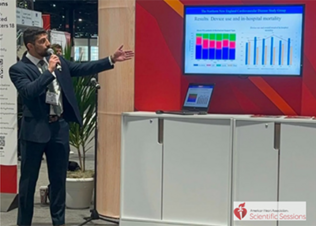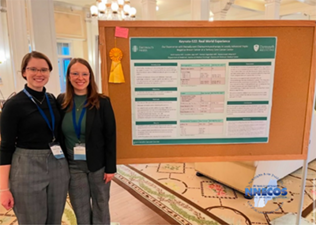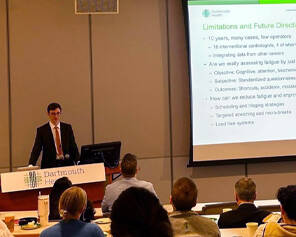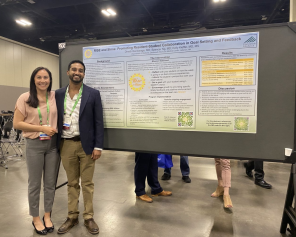The Internal Medicine Residency Program is dedicated to supporting residents in developing academic skills essential for career advancement and forwarding patient care.
We believe research proficiency informs career planning, enhances critical appraisal of medical literature, and generates new medical knowledge for the betterment of patients. To this end, residents will complete at least 1 scholarly project addressing a specific research question. Projects may include literature reviews (with or without case reports), basic science research, quality improvement initiatives, epidemiological studies, or clinical trials—either independently or collaboratively.
Research-focused sessions integrated into the academic half-day curriculum provide practical guidance on research methods (i.e., accessing and using our free modeling resource PRISM), navigating the IRB at Dartmouth Hitchcock Medical Center, and careers in academic medicine. Expert clinician-researcher and resident-led Journal Clubs occur monthly (White River Junction Veterans Affairs Hospital and Dartmouth Hitchcock Medical Center).
Intended to support early collaboration and support for fellowship applications, all interns rotate through a dedicated two-week Research Training Module, a self-directed curriculum designed to introduce clinical research design. During this time, interns are relieved of most clinical duties, except continuity clinic and academic half-day sessions, allowing them to:
- Complete Institutional Review Board (IRB) training
- Meet with mentors and residency leaders to refine project ideas
- Review resources on study design, research ethics, and manuscript preparation (e.g., CITI training modules)
Residents can allocate up to 3 months of non-clinical elective time for research with Program Director approval. Statistical and logistical support is provided throughout as needs arise.
Residents are also encouraged to present their research at regional or national conferences, with funding available for travel costs when projects are accepted. The annual Residency Research Day, held in May, highlights residents’ achievements, with selected projects recognized through oral presentations at Medical Grand Rounds.
This structured approach ensures residents gain valuable research experience, strengthening their academic foundation and career prospects.



